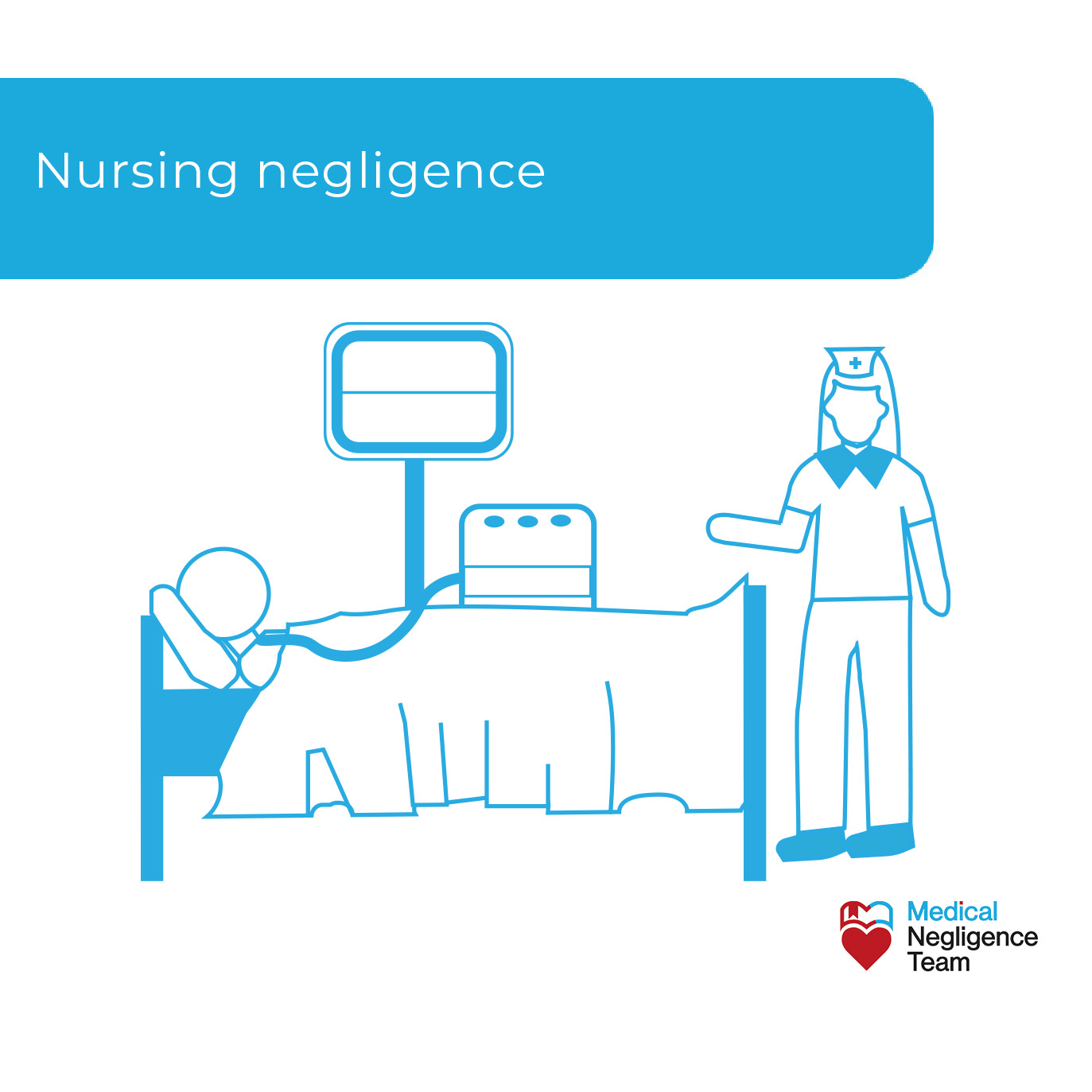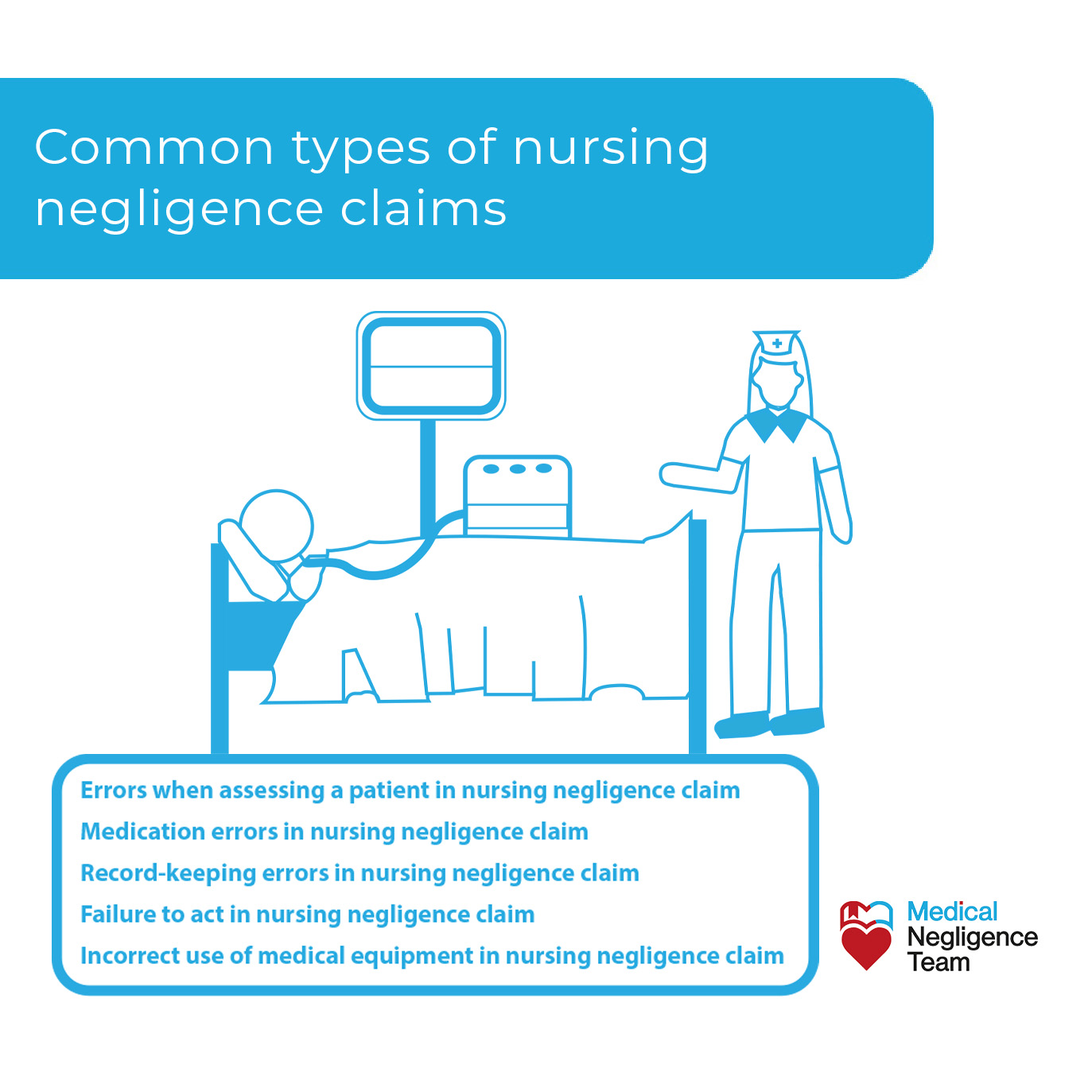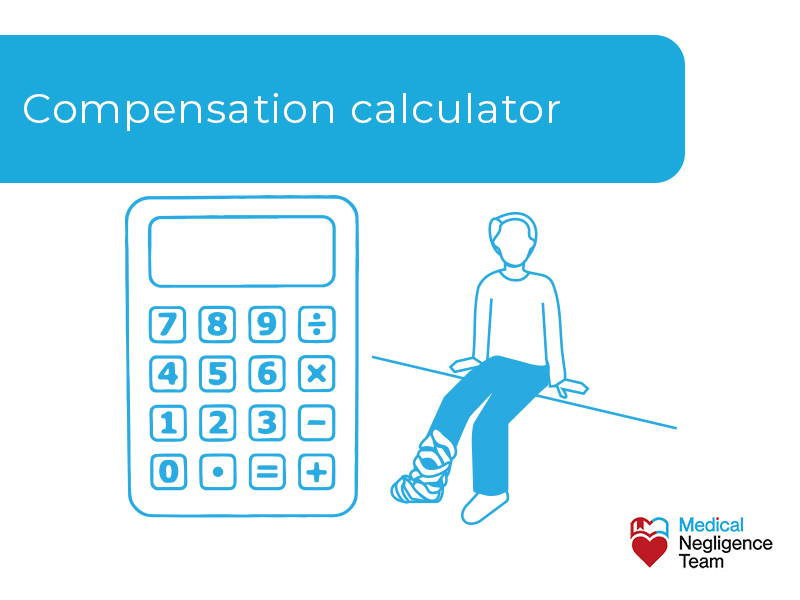If you or a loved one has experienced negligent care at the hands of a nurse in the NHS, you may be entitled to medical negligence compensation.
Speak to an experienced medical negligence solicitor today for an accurate claim estimate.
The Medical Negligence Team No Win No Fee solicitors can look at your case and see if you have a valid nursing negligence compensation claim.

Table of content
What is a nursing negligence compensation claim?
A nursing negligence compensation claim is the legal process you follow to get the compensation you deserve for the injury caused by medical negligence.
Medical negligence by a nurse can cause an injury that could be with you for life. You could suffer nerve damage in the arms and legs, have a delayed diagnosis of cancer or be seriously ill from taking the incorrect medication. If the injury is due to nursing negligence, you may be able to claim compensation.
The NHS in the UK employs over 1.4 million people. There are more than 370,000 nurses working in the NHS, but there are still fewer nurses per head of population than in countries such as Norway and Germany. Nursing shortages put pressure on existing staff and make it very difficult for junior nurses to gain experience.
Shortages in nursing staff pressure on nurses while at work due to cutbacks and budget cuts can lead to medical negligence. Patients may suffer due to NHS shortages.
If you suffered due to nursing negligence, you could have a medical negligence compensation claim.
Common types of nursing negligence claims
Common types of nursing negligence claims for compensation range from needle injuries to medication errors and mistakes when entering updates to patient records. You may have a nursing negligence claim when a nurse breaches their duty of care.
In a medical negligence claim, you seek compensation for the effects of the injury on your life today and in the future.
Common nursing negligence claims:

Errors when assessing a patient in nursing negligence claims
If a nurse makes an error when assessing a patient, it can affect the patient’s care and diagnosis of their illness. Part of a nurse’s job is to evaluate a patient to give the consulting doctor a good overview of the ill person’s health.
Errors a nurse makes when assessing a patient:
If a nurse makes errors when assessing you or a loved one in their care, you could have a nursing negligence claim.
Medication errors in nursing negligence claims
Medication errors by a nurse when caring for a patient could make the patient very ill or even delay the correct treatment for a sick patient.
Having the correct medication and dose is a vital tool in patient care – suffering a medication error can affect your life today and in the future.
Medication errors by a nurse:
You could have a nursing negligence claim if the nurse makes an error with your medication.
Record-keeping errors in nursing negligence claims
Record keeping is a vital way of monitoring a patient’s health and the medication they take every day.
If a nurse is negligent when keeping patient records, their health could suffer, and their life could be in danger in some circumstances.
Record-keeping errors by a nurse can be:
You could have a medical negligence compensation claim if you suffer an injury due to record-keeping errors by a nurse.
Failure to act in nursing negligence claims
A failure to act by a nurse or any medical professional can be medical negligence. Nurses need to act when they spot a change in a patient’s condition or in an emergency when they see one happening.
A failure to act can be negligence when:
The failure to act by a nurse can cost time, cause treatment delays and could be nursing negligence.
Incorrect use of medical equipment in nursing negligence claims
The incorrect use of medical equipment can cause physical injury, could put a patient’s life in danger and could cause treatment errors. A nurse should be fully trained in the use of medical equipment and know how to use it in an emergency.
The incorrect use of medical equipment by a nurse can be:
You could have a nursing negligence claim if you suffer an injury due to the incorrect use of medical equipment.
A No Win No Fee medical negligence solicitor can take your nursing negligence claim and get you the compensation you deserve.
Compensation for nursing negligence
You can claim compensation of more than £15,000 for nursing negligence, and many compensation claims for medical negligence can be between £100,000 and £10 million, depending on the effects they have on your life.
In a nursing negligence compensation claim, you claim for the effects of the medical negligence on your life today and in the future, such as a loss of income, time in recovering from an injury and delays in your treatment.
Compensation awards vary depending on your age, income, the disruption you experience, and the future effects on your family.
Very high awards in nursing medical negligence claims are for when a patient suffers the effects of the injury for life, such as the failure to act in an emergency or the failure to monitor the blood sugar levels of the patient.
Patients may not be able to return to work, or they may need full-time care and make adaptions to their car and home.
Compensation for nursing negligence can see claims of:
(All amounts are approximate and are only a guide to what is possible in any medical negligence claim. Figures can be high in some claims as you or a loved one could need long-term care and may face medical bills for life. You may be able to claim for these care expenses and the medical costs in the future.)

As in all medical negligence claims, each case is dealt with on merit and how much the patient suffers due to a nurse’s failure to act or other types of medical negligence by a nurse.
A No Win No Fee medical negligence solicitor will advise you on the nursing negligence claim.
Our team will know from experience what your case may be worth and how to make a successful compensation claim for nursing medical negligence.
Can I make a nursing negligence claim against the NHS?
Yes, you can make a nursing negligence claim against the NHS, just like you can with any type of medical negligence.
If you have suffered an injury due to the nurse’s failure to monitor you correctly or errors they made during the birth of your child, you may have a medical negligence compensation claim.
When you suffer an injury in any NHS facility you may claim against the NHS. In the UK we trust in the NHS. We use the NHS daily and are proud of the high level of care patients receive when in the care of the NHS.
NHS Resolution is a government body established to handle cases of medical negligence in the NHS. You may bring a medical negligence case to NHS Resolution and seek compensation for the effects of the errors by a nurse today and in the future.
A No Win No Fee medical negligence solicitor can look at your compensation claim and help deal with NHS Resolution.
Can I make a nursing negligence claim against a private nursing home?
Yes, you can make a nursing negligence claim against a private nursing home. The private nursing home has a duty of care to the patient, and if they breach that duty of care, causing an injury, then you may have a compensation claim.
Elderly people in a nursing home are vulnerable. We trust in the nursing staff to care for our elderly relatives and to give them a professional level of care at all times.
Nursing medical negligence in a private nursing home can be:
You may make a compensation claim if you or a loved one suffers medical negligence in a private nursing home.
Our team of No Win No Fee medical negligence solicitors can help make you a compensation claim for nursing negligence.
Contact the Medical Negligence Team
Contact the Medical Negligence Team today for expert advice and guidance with your claim for nursing negligence when in the hospital or any care centre.
You could experience medical negligence in the NHS Hospital when undergoing treatment for cancer or when the nurse makes an error taking your blood pressure when under observation in the cardiology ward.
The Medical Negligence Team operate on a no win no fee basis. You will not have to pay any fees if you do not win a compensation claim for medical negligence.
We have a very high success rate and a reputation for a speedy and successful resolution to any medical negligence claims.
Our 100% Compensation Guarantee puts all the money you win into your pocket.
Contact the Medical Negligence Team today, and let us help make a compensation claim for nursing negligence.


